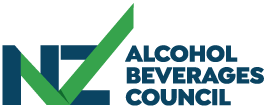12 November 2021
The NZ Alcohol Beverages Council (NZABC) says a turning point in Kiwi’s attitudes toward balance and moderation has seen no- and low-alcohol drinks become more socially acceptable, as evidenced by the recent boom in zero-alcohol beers sales. A 322% increase in zero-alcohol beer was seen in the span of a year (June 2020-June 2021). Over 2.14 million litres of zero-alcohol beer was produced in that period, equivalent to more than 6.5 million 330ml bottles.
“Kiwis are making better decisions about alcohol, and our behaviours are changing, particularly how we drink and socialise and our purchasing decisions. It’s being driven by a shift in positive social attitudes toward no- and low-alcohol beverages, which are now seen as socially acceptable. Forty per cent of Kiwis consumed low-alcohol drinks last year. They are choosing drink options that better suit their lifestyle or personal situation, as seen by the recent boom in zero-alcohol beer sales,” says Bridget MacDonald, NZABC’s executive director.[i]
“Research earlier this year found 91% of Kiwi males wouldn’t care if a friend chose not to drink alcohol on a night out, and 65% of Kiwis say they feel comfortable not drinking alcohol on a night out. This suggests that Kiwis’ current attitudes and behaviours are more focused on moderation and being sociable, and the social pressures to drink are becoming less acceptable,” says Bridget.[ii]
“This is a positive story – one of moderation, innovation and consumer choice. Around 80% of Kiwis say they would like to alternate more between drinking non-alcohol and alcohol-based drinks when socialising with their friends – so it’s important people have choices whether they are out with friends in a bar or at a family BBQ. With increasing consumer demand for lower-alcohol drinks, we are seeing a rapid expansion of no/low category products,” Bridget says.[iii]
“Beer and wine producers are working hard to meet changing consumer needs. The craftsmanship and dealcoholization technology behind zero-alcohol beer brands like Speights, Asahi and Heineken shows there is no compromise on quality or flavour. Kiwi winemakers have similarly perfected crafting 0% and lighter wines. And, I have it on good authority that other big brands will be launching 0% brews and wines just in time for summer,” Bridget says.
“Our alcohol consumption has been trending downward for some time, and global consumption declined 6% last year. We are drinking around 25% less today than in the 70s and 80s, seeing less hazardous drinking, fewer younger people drinking, and consumption decreasing. We consume less alcohol per capita than the OECD average. It’s a positive shift to a more moderate and responsible drinking culture,” Bridget says.[iv] [v] [vi]
How New Zealanders are drinking is also changing more broadly with a move to more premium wine, beer and spirits – so although people are drinking less, some consumers are still drinking full-strength beverages yet drinking them in a more moderate and mindful way.[vii]
“The pandemic has prompted people world-over to think about their health and wellbeing. The majority of New Zealanders drink moderately and sensibly. Still, it’s always good to check our consumption of alcohol is part of a balanced lifestyle, consider no- and low-alcohol options, and support others to do the same,” says Bridget.
Need more information?
Check out cheers.org.nz and alcoholandme.org.nz for more information on what a standard drink is and how to make better drinking decisions.
A good rule of thumb is ‘Go no, low or slow’. It’s okay to choose no or low alcohol drinks. If you choose to drink, pace yourself and enjoy your drink slowly.
Ministry of Health/HPA Guidelines: Low-risk alcohol drinking advice to reduce your long-term health risks by drinking no more than:
– Two standard drinks a day for women and no more than 10 standard drinks a week,
– Three standard drinks a day for men and no more than 15 standard drinks a week,
– AND have at least two alcohol-free days every week.
Need help?
Call the Alcohol Drug Helpline on 0800 787 797, free txt 8681, or visit alcoholdrughelp.org.nz.
Link to referenced material:
